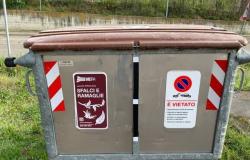Like every year, at the end of summer, the report from the Bank of Italy arrives on time to dismantle the lies and imaginative constructions of the government majority. In this case of the Piedmont regional government. On the other hand, it certainly could not be expected that the opposition should study the documents that highlight the falsity of the official narrative. Especially when the majority and the opposition in the Region reverse the roles in Turin and continue to go arm in arm in the name of institutional harmony.
Which is so good when it guarantees the promised results. But that’s not the case. And Piedmont – a rich, happy, fertile land, which ranges from the highest peaks in Europe to the very nearby Ligurian sea, which boasts cutting-edge universities and industries that the world envies – turns out to be unattractive. Young graduates leave and are not replaced by equally trained foreign peers, because those with high professional skills flee and arrive, when they arrive, only as hands.
Young people who have founded high-growth companies are fewer than the national average and 30% of them preferred to found the company in another region. Not exactly a source of pride for Piedmontese institutions.
But Bankitalia is not gentle with entrepreneurs either. And the comparison with the multinationals present in Piedmont is merciless. Multinationals make up 4% of all companies, but they have 25% of the employees and represent 40% of the added value. They have a greater focus on exports, a greater propensity to invest in innovation, more permanent workers and with higher wages. Result? They have higher productivity, which is precisely one of the critical elements of subalpine entrepreneurship. Isn’t investing more and paying employees more the winning strategy?
What partially saves the situation is the lower cost of living compared to other large cities, starting with Milan. But real income has still decreased, purchasing power has decreased – despite the government’s lies – and savings have decreased. Institutional harmony, however, continues. And instead of refuting the false narrative of the Region, the Municipality of Turin has chosen to penalize the inhabitants: the cost of living is low, therefore the Tari can be increased. To make the area more attractive.





